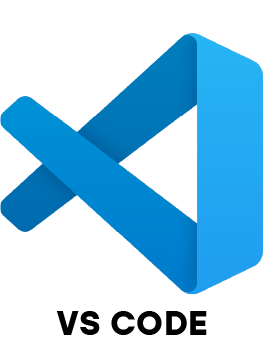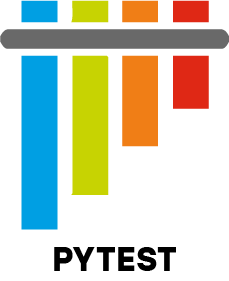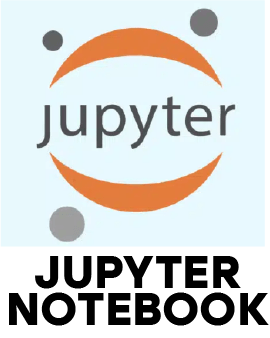Python Certification Training in Kochi is appropriate for Python newcomers, intermediate learners, and experts. Learn Python from the ground up and work on real-world projects and case studies to gain extensive hands-on experience. Listen, learn, interact, question, and apply with the instructors in real time throughout the course. Python Certification will assist you in learning Python concepts and libraries such as SciPy, Matplotlib, Scikit-Learn, Pandas, NumPy, Lambda functions, and Web Scraping. Learn how to code in Python for Big Data systems such as Spark and Hadoop.
Additional Info
Introduction:
Python is an object-oriented, multi-purpose high-level programming language. It includes dynamic semantics, which is mostly used for web and app development. Python supports dynamic typing and dynamic binding, making it suitable for Rapid Application Development. Python also includes packages and modules, which promote code reuse and programme modularity. When compared to almost any other programming language, Python is relatively easy to learn because doing something with Python usually requires fewer lines of code than doing something with another programming language.
The Benefits of Python Training:
1. Readability, Learning, and Writing Ease:
- Python is a high-level programming language with English-like syntax.
- This improves the readability and comprehension of the code.
- Python is extremely easy to learn and use, which is why many people recommend it to beginners.
- In comparison to other major languages such as C/C++ and Java, fewer lines of code are required to perform the same task.
2. Increased Productivity:
- Python is a powerful programming language.
- Because Python is so simple, developers can focus on the problem at hand.
- They are not required to spend a significant amount of time learning the syntax or behaviour of the programming language.
- You write less code and get more done.
3. Interpreted Language:
- Python is an interpreted language, which means that each line of code is executed.
- If an error occurs, it suspends further execution and reports the error.
- Python displays only one error even if the programme contains multiple errors.
- This makes debugging easier.
4. Dynamically typed:
- Python has no idea what type of variable we're referring to until we run the code.
- It automatically assigns the data type during execution.
- Variables and their data types do not need to be declared by the programmer.
5. Open-Source and Free:
- Python is distributed under an open-source licence approved by the OSI.
- As a result, it's completely free to use and distribute.
- You can modify the source code and even distribute your own Python version after downloading it.
- This is advantageous for organisations that want to modify a specific behaviour and use their version for development.
6. Comprehensive Library Support:
- Python's standard library is massive, and it contains nearly all of the functions you'll need for your task.
- As a result, you are not required to use third-party libraries.
- Even if you don't, a Python package manager (pip) makes importing other fantastic packages from the Python package index much easier (PyPi).
- It consists of over 200,000 packages.
7. Flexibility:
- Many programming languages, such as C/C++, require you to modify your code in order for it to run on different platforms.
- Python, on the other hand, does not have the same characteristics.
- It only needs to be written once and then run anywhere.
Job Opportunities in Python:
Here are some job openings for you:
- This is one of the easiest jobs you can expect to get after learning this skill.
- According to the statistics presented in the preceding section, there will always be open Python developer positions to fill.
A few key responsibilities are as follows:
- Make websites.
- Resolve any data analytics issues.
- Create code that is both reusable and efficient.
- Algorithms for data should be optimised.
- Put in place data protection and security safeguards.
Highlights of the Python Programming Language:
- The software is free to use, open source, and dynamically typed.
- It is simple to learn an object-oriented language.
- GUI programming is supported.
- High-level and portable, by definition.
- A language that is integrated as well as interpreted.
- There is extensive standard library support.
Python Course Career Path:
- Python is not only one of the world's most popular programming languages, but it also offers some of the most promising career opportunities.
- The demand for Python developers grows year after year.
- There is a reason for this high-level programming language's popularity.
- It guarantees better and more concise code with faster readability than any other programming language.
- Even shorter Python code can lead to improved designs.
- Python is also one of the best programming languages for creating dynamic scripts on both large and small scales.
- Python can be used in a variety of contexts, such as testing, web development, app development and upgrades, and scriptwriting, to name a few.
- Python's dynamic type system and automatic memory management are compatible with a wide range of programming standards.
- If you learn Python, you will have more career options than you can imagine.
- Python opens up a number of possibilities for you that no other programming language can.
Who is eligible to begin:
How long does it take to learn Python programming from scratch to expert level?
If you're already familiar with the fundamentals of programming languages, programme logic, and so on, you only need to focus on the syntax, which takes about a month in Python's case. It will take about 3 months if you spend no more than 4 hours per day as a beginner. However, if you are just getting started with Python programming, you should review our list of the most important topics.
What is the meaning of the name Python?
Guido van Rossum, an interpreter, created Python to address the shortcomings of the ABC language he was working on while working at the Centrum voor Wiskunde en Informatica (CWI).Van Rossum was a huge fan of the 1970s hit BBC comedy show 'Monty Python's Flying Circus.' Van Rossum liked the show and wanted a unique, short, and mysterious name for his language, so he named it Python.
Python Training Certification in Kochi:
Responsibilities and Roles:
- Writing efficient, reusable, testable, and scalable code.
- Understanding, analysing, and implementing – Business requirements, feature requests, and software component conversion.
- Integration of user-friendly elements into various applications and data storage solutions.
- Backend components for improved performance and responsiveness, server-side logic and platform, statistical learning models, and highly responsive web applications are all in the works.
- High availability and low latency applications, as well as data protection and security features, must be designed and implemented.
- Optimization and automation of application performance.
- Python test framework is used for software testing and debugging.
- Behave, Pytest, PyUnit, and other tools are available.
- Enhancing the usability of existing software systems.
- Creating digital tools for tracking online traffic.
- Python libraries such as Pandas, NumPy, and others are used.
- Predictive models for AI and machine learning-based features are being developed.
- Keeping current with the latest technology and trends.
- Fine-tune and develop AI/ML-based algorithms based on the results.
Payscale:
1. A variety of unobservable factors, such as geographical location, demand, skill set, and so on, determine the approximate and average pay scale for Python Trainer in Kochi.
2. A novice Python developer can expect to earn $70,000-80,000 per year, while an experienced Python Trainer can expect to earn $100,000-120,000 per year.








































